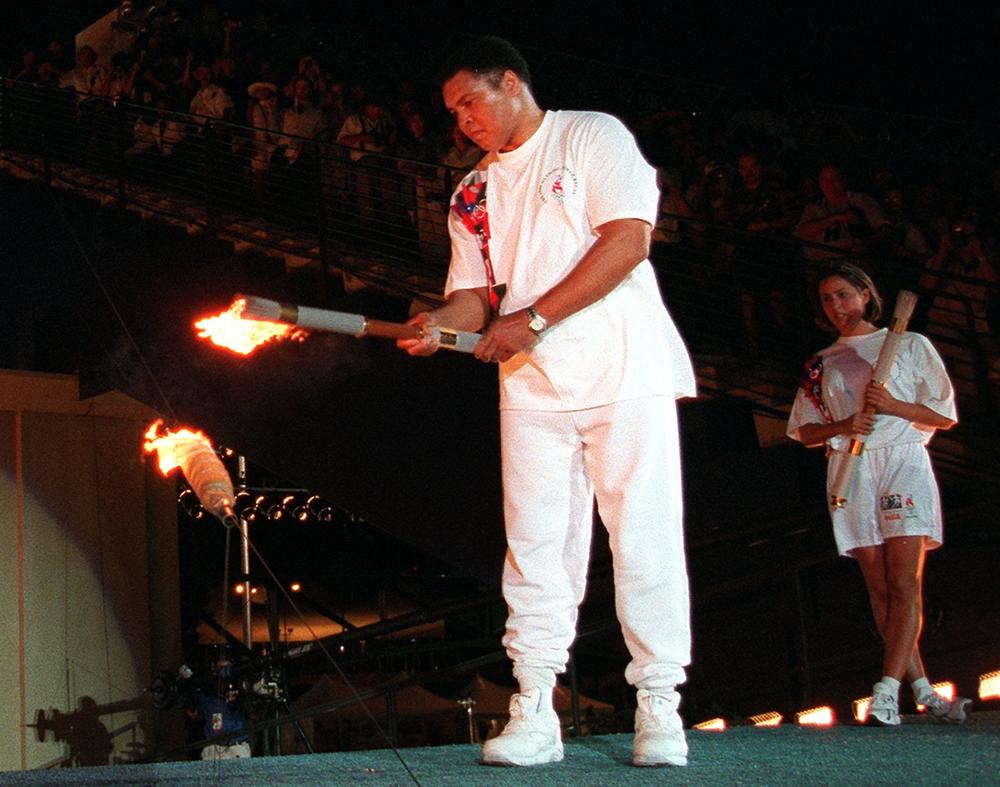Section Branding
Header Content
Atlanta Cauldron To Be Lit For First Time Since 1996 Olympics
Primary Content
Atlanta's Olympic flame will burn again this weekend for the first time since 1996 for the 2020 Olympic U.S. Marathon Trials.
Muhammad Ali lit the Olympic cauldron during the opening of the 1996 Games, and Athletics Director Charlie Cobb will ignite the flames Saturday, Georgia State University announced.
The cauldron, which will burn from 11:50 a.m. Saturday until the end of the trials around 3:30 p.m., towers over the intersection of Capitol Avenue and Fulton Street, just outside the stadium.
Competitors will begin their race in front of Centennial Olympic Park – the crown jewel of the 1996 Atlanta Games – and head down Marietta Street toward Peachtree. They will proceed 3 miles north on Peachtree until they pass the intersection of Peachtree and West Peachtree, then turn around and head back down Peachtree in the opposite direction, loop through Atlanta's Old Fourth Ward neighborhood and return to downtown.
The runners will complete this loop three times before heading on a 2.2 mile final loop that runs under the Rings and Torch structure from the 1996 Atlanta Olympics, goes by the Georgia Capitol building and passes by the sports stadiums that house the Atlanta Falcons, Atlanta Hawks and Atlanta United FC.
They will then reach the welcome sight of the finish line inside Centennial Olympic Park.
The Marathon Trials will be one of several events held throughout Downtown and Midtown Atlanta expected to bring thousands of visitors into the city center this weekend, Atlanta police said.
FYI: The U.S. Olympic Team Trials Marathon is this Saturday, February 29 & some road closures will start as soon as Wednesday, February 26. @centennial_park will be closed 2/27 & 2/28 to visitors due to construction for the event. Be mindful of road closures & plan accordingly. pic.twitter.com/aS7cje8hP0— Atlanta Police Department (@Atlanta_Police) February 25, 2020
Visitors to the city are encouraged to take MARTA, use rideshare services and taxis, or carpool. While officers will be available to assist with traffic, vehicle volume due to the many events can cause delays with more than 160,000 people expected for a number of shows, athletic events, and concerts.


